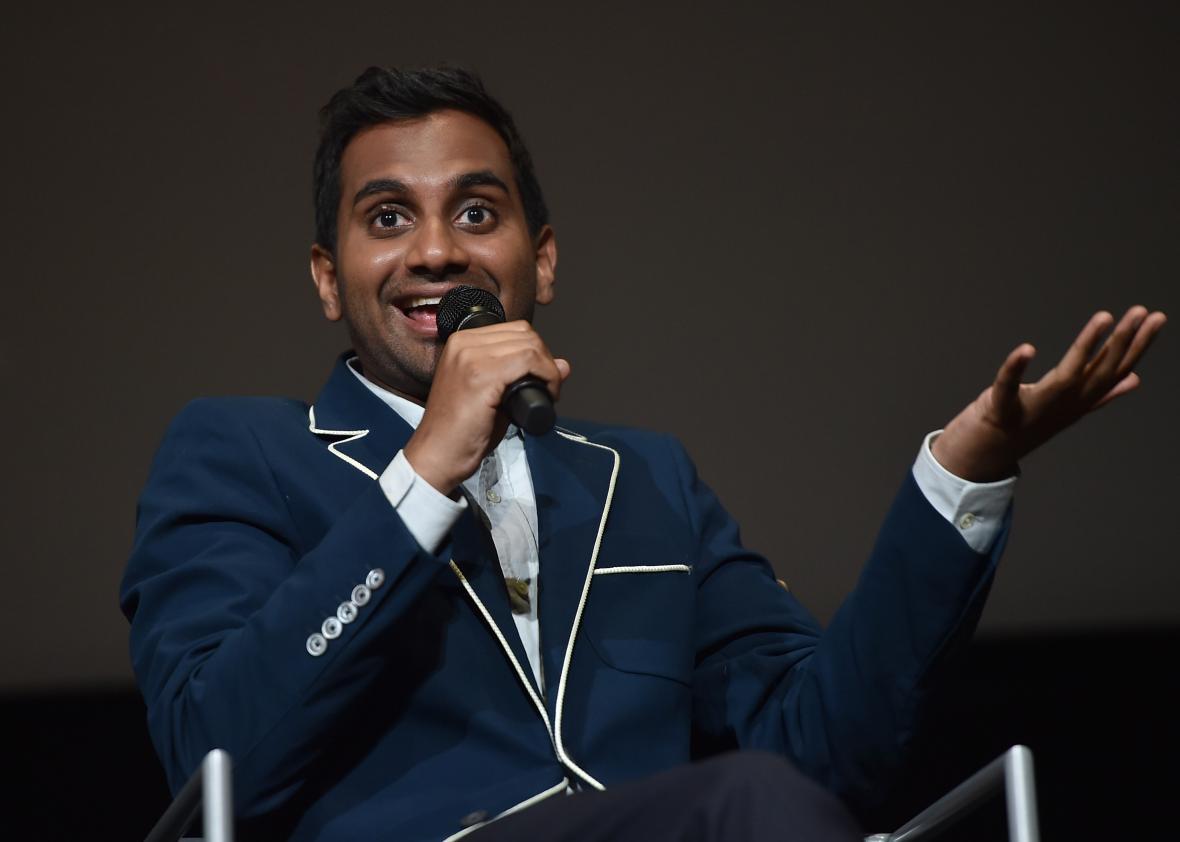Aziz Ansari deleted the internet from his phone and computer. Who even knew it was possible to do that—don’t devices force you to keep a default internet browser, like the iPhone used to make you keep the stupid Stocks app?—but lo, Ansari has done it. The comedian told GQ Style that he is off social media and the internet and feeling great about it. (He still has text messaging, which feels a little cheaty.)
His reasons for unplugging are eminently sensible. “I wanted to stop that thing where I get home and look at websites for an hour and a half, checking to see if there’s a new thing,” he told the magazine. It’s sad, though not all that surprising, to think a legitimately cool and happening Hollywood star engages in the same nightly ritual of dicking around on the internet that I thought was only for mole people like myself. “All those websites you read while you’re in a cab, you don’t need to look at any of that stuff,” he went on. “It’s better to just sit and be in your own head for a minute.” I get it, I really do. But there’s still something that feels faintly fraudulent about this uninformed-and-loving-it stance.
Ansari is far from the first celebrity to publicly interrogate his relationship with smartphones and the internet. Surely you’ll recall the period last year when Selena Gomez took a 90-day digital detox. “During that time I did not have my cellphone. It was the most refreshing, calming, rejuvenating feeling,” she told Thrive. Ed Sheeran pulled a similar move at the end of 2015, writing to his fans on Instagram, “I find myself seeing the world through a screen and not my eyes … if you love me you will understand me buggering off for a bit.” Kanye West, too, last year vowed to swear off the internet when he tweeted, “I got rid of my phone so I can have air to create.”
It’s hard not to sound cranky or highfaluting when espousing the necessity of and joy to be found in quitting the internet. In Gomez’s case, departing the ‘net apparently caused her to start talking like she’s in a vintage cult recruitment infomercial: “Now I rarely pick up my phone, and only limited people have access to me.” But even reasonable people, like Ansari, or Kerry Washington, come off a touch sanctimonious. “It’s time for me to take a teeny break from social media,” Washington posted on Instagram last year. Fine, by all means. “Feeling called to be a bit more quiet and still,” the note went on, and that’s when my eyes started to roll. “Feeling called”? Come on.
Remember when “I don’t have a TV” was the go-to signifier of intellectual snobbiness? This has changed: Televisions themselves may be going the way of land lines, and some millennials are unfamiliar with the concept of antennas, but even so, TV is cool now. “Netflix and chill” and such. Thinking of TV as the “idiot box” is a relic of the pre-streaming era. But it’s been replaced by a new way to show off your holier-than-thou attitude regarding the media you choose to ingest: Now all you have to do is say smugly, “I’m taking a break from the internet.”
I have the same kneejerk reaction to this that I do to people who are really into mindfulness or wellness or basically anything Goop recommends. Oh, you think you’re better than me? You think you’re better than looking at memes and double-tapping your friends’ pictures of dessert?
It’s also true that not anyone can decide to chuck her phone and go off on a meditation retreat. Many of us have jobs that force us to stay connected, and reachable by our employers, whether we feel the “air to create” or not. Of those who think they spend too much time online, who wouldn’t love to unplug? To pay an assistant to tweet for you? (I would do it for sure, provided that a version of methadone specifically for internet addiction is developed.)
Many of us don’t have the luxury of a digital detox. The majority of people don’t have staffers on hand to help them show up where they need to be, keep them informed, and otherwise manage all the little things in life that smartphones now facilitate. Of course, there’s nothing wrong with trying to train yourself to feel less reliant on the little dopamine hits that Instagram and Snapchat deliver. But it may well be that the best way to leave the internet is the same as the best way to leave a party. Don’t make any grand, over-generalized declarations. Don’t say anything at all. Just ghost.
